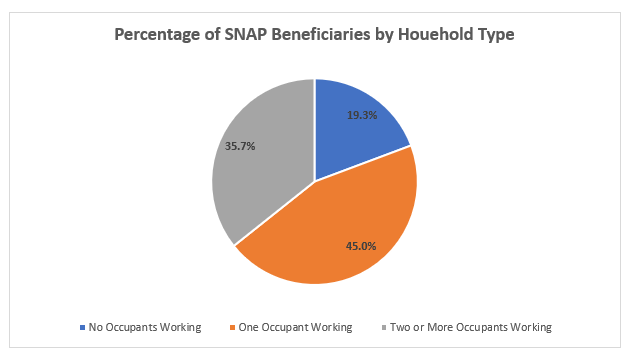
A common misconception about those receiving social benefits like SNAP is that a large majority are out of work or not seeking employment, however that is not the case. In fact, in Florida, 80.7% of households that received SNAP last year had at least one member of the household working during the year.
While SNAP and other social benefits are meant to be temporary supports to bridge individuals or families during times of financial struggle, those receiving SNAP have dealt with challenges due to rising food costs. A recent study conducted by the Florida Policy Institute found that nearly 60 percent of SNAP recipients surveyed could not afford nutritious food due to rising costs of fresh vegetables, fruits, lean meats, and other healthy food items.
This experience is evident in surveying. Quantitative analysis of inflation rates tells a similar, alarming story. For more than a year, inflationary pressures have increased the cost of groceries more severely than food that can be purchased eating out. In fact, our analysis shows inflation by a few key food categories below.
Categories that may have more negative impacts on one’s health, like eating away from home and alcohol, have seen their costs rise at a slower pace than staples of a healthy diet, like dairy and fruits & vegetables. A key reason the Florida Chamber Foundation works to improve education and access to opportunities is related to the fact that social benefit programs, while valuable, cannot keep pace with rapidly changing economic times. It is important that we support greater access to programs that support stronger economic outcomes so that families do not need to rely so heavily on social benefits that may not be able to support their true needs at home.